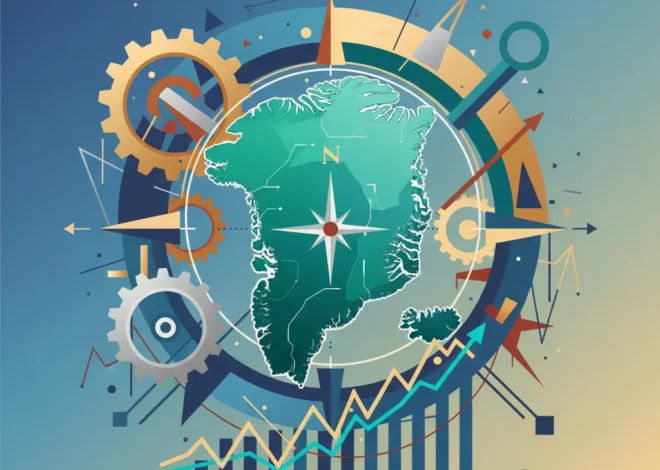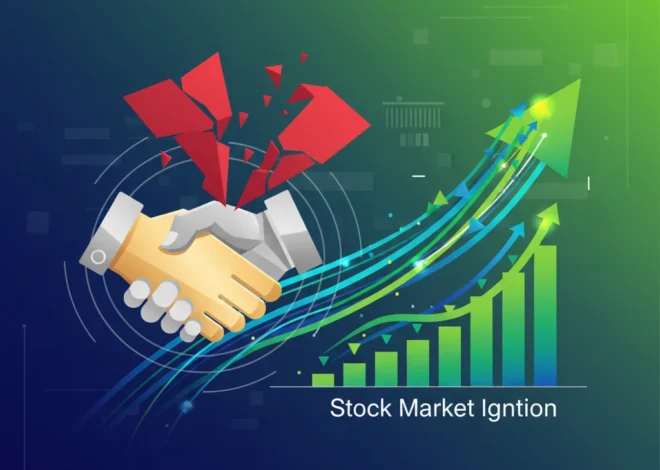
The Washington-Buenos Aires Gambit: Why the U.S. is Betting on Argentina’s Risky Economic Revolution
A High-Stakes Wager in the Heart of South America
In the world of international finance and geopolitics, few stories are as consistently tumultuous as Argentina’s. A nation blessed with vast resources, it has been perpetually plagued by economic instability, staggering debt, and hyperinflation that corrodes the very fabric of society. Enter Javier Milei, a radical libertarian economist-turned-president, who stormed into office with a chainsaw and a promise of “shock therapy” to cure the nation’s ills. But the most surprising twist in this saga isn’t just Milei’s radical agenda; it’s the quiet but crucial backing he’s receiving from an unlikely corner: Washington.
The United States Treasury, traditionally a cautious and stabilizing force in the global economy, is taking a calculated risk on Argentina. By signaling its support for the Milei administration’s engagement with the International Monetary Fund (IMF), the U.S. is effectively underwriting one of the most audacious economic experiments in modern history. This isn’t just about balancing budgets or restructuring debt; it’s a complex geopolitical chess move with profound implications for the global economic order, international investing, and the shifting balance of power between the U.S. and China. This post will dissect the strategy, analyze the immense risks, and explore what this high-stakes gambit means for the future of finance and economics.
The Argentine Conundrum: A Century of Crisis
To understand Washington’s current position, one must first grasp the depth of Argentina’s economic despair. This is not a recent problem. For decades, the country has been trapped in a vicious cycle of populist spending, currency crises, sovereign defaults, and failed IMF programs. By the time Milei was elected, the situation had reached a fever pitch, with annual inflation soaring past 140 percent, poverty levels climbing, and the peso in freefall.
Milei’s diagnosis was stark: the political establishment (“la casta”) and the bloated state were the disease. His proposed cure is equally severe:
- Drastic Fiscal Austerity: Slashing government ministries from 18 to 9, cutting public works, and eliminating subsidies.
- Monetary Revolution: A long-term goal of abolishing the central bank and dollarizing the economy to permanently kill inflation.
- Market Liberalization: Deregulating vast sectors of the economy to spur competition and investment.
This “shock therapy” is a radical departure from the gradualist approaches that have failed in the past. It’s a high-risk, high-reward strategy that could either break the cycle of decline or plunge the nation into even deeper social and economic chaos.
The Trillion-Dollar Sponges: Why 'Molecular Lego' is the Next Frontier in Finance and Technology
Geopolitics over Economics: The China Factor
So, why would the U.S. endorse such a volatile experiment? The answer lies less in pure economics and more in the grand arena of global power competition. For years, Washington has watched with growing concern as China has expanded its economic and political influence across Latin America through its Belt and Road Initiative, infrastructure loans, and trade deals.
Argentina, under its previous Peronist government, was drifting steadily into Beijing’s orbit. It was poised to join the BRICS bloc of nations—a group seen as a geopolitical counterweight to the G7—and had increasingly relied on currency swap lines with China to prop up its finances. Milei’s victory represented an abrupt geopolitical U-turn. He has openly criticized Beijing, affirmed his alignment with the U.S. and Israel, and frozen Argentina’s entry into BRICS.
For the U.S. Treasury, supporting Milei’s government is a strategic imperative. It’s a chance to secure a committed, pro-Western ally in a critical region and push back against Chinese encroachment. A successful economic turnaround in Argentina, guided by free-market principles and backed by the West, would serve as a powerful ideological and political victory. The risk of economic failure is weighed against the strategic risk of ceding further ground to a primary global rival. As one official noted, the U.S. is backing Argentina because it is “now a country that wants to work with us” (source).
The IMF’s Tightrope Walk, Guided by Washington
At the center of this financial drama is the International Monetary Fund. Argentina is the IMF’s largest debtor, with an outstanding $44 billion loan program that has been repeatedly off-track. Any path forward for Argentina requires the IMF’s seal of approval, and that seal is heavily influenced by its largest shareholder: the United States.
The U.S. Treasury’s support provides the political air cover for the IMF to engage constructively with Milei’s team. Without it, the fund would be far more hesitant to back such an unorthodox and risky program. This support allows the IMF to potentially restructure payments, disburse new funds, and give Milei the breathing room needed to implement his painful reforms. However, this also puts the IMF’s own reputation on the line. The fund has a checkered history in Argentina, and another failed program would be a devastating blow to its credibility as a lender of last resort and a steward of the global banking system.
Titans, Tensions, and Tech: Decoding the Mixed Signals of the Global Economy
A Calculated Gamble: Weighing the Upside and Downside
The decision to back Milei is anything but a sure thing. It’s a calculated gamble where the stakes are incredibly high for all parties involved. The potential outcomes range from a stunning success story to a catastrophic failure.
The following table breaks down the potential risks and rewards for the key stakeholders in this economic overhaul:
| Stakeholder | Potential Upside (If Milei Succeeds) | Potential Downside (If Milei Fails) |
|---|---|---|
| United States | A strong, pro-US ally in South America; A powerful counter to China’s regional influence; A showcase for free-market reform. | Severe reputational damage to the Treasury and IMF; Pushes a desperate Argentina back towards China; Wasted political and financial capital. |
| Argentina | Lasting economic stabilization; The end of hyperinflation; Renewed foreign investment and sustainable growth. | A deeper, more painful recession; Widespread social unrest and political instability; Another sovereign default and international isolation. |
| Global Investors | Massive returns on high-risk Argentine assets (bonds, stocks); A newly stable and predictable environment for business and trading. | Catastrophic losses from a market collapse or default; Extreme volatility undermining the entire emerging market asset class. |
The most significant risk is social. Milei’s austerity measures will inflict immediate and severe pain on the population. If the public’s patience wears out before any positive results materialize, widespread protests and political instability could derail the entire program, leading to a disastrous collapse.
Implications for the Modern Investor and Global Economy
This unfolding drama in Argentina is not a distant, isolated event. It has tangible implications for anyone involved in international finance, investing, and business.
For investors, Argentina remains the ultimate high-risk, high-reward play on the global stock market. Those willing to stomach extreme volatility could see astronomical returns if Milei’s plan succeeds. However, the risk of a total wipeout is just as real. This is a scenario that demands sophisticated risk management and a deep understanding of geopolitical undercurrents, not just economic charts.
For the broader global economy, the outcome will set a powerful precedent. A successful turnaround could embolden other nations to pursue aggressive, market-oriented reforms. A failure, however, could discredit the IMF and the Western financial model, potentially strengthening the appeal of alternative systems offered by nations like China. It also raises questions for the banking and financial technology sectors. A potential dollarization, for instance, would completely reshape Argentina’s banking system and could accelerate the adoption of fintech solutions, and perhaps even blockchain-based technologies, as the country seeks a new financial infrastructure.
The Ultimate High-Risk Bet: Why Investors Are Piling into Venezuela's Defaulted Bonds
Conclusion: A Defining Moment for the Americas
The United States’ decision to support Javier Milei’s Argentina is a bold, pragmatic, and deeply risky maneuver. It is a tacit acknowledgment that the old ways have failed and that something radically different is worth a shot, if only to prevent a strategic competitor from gaining a key foothold. Washington is not just betting on an economic theory; it’s betting on a single, unconventional leader to tame a century of chaos, all while navigating the treacherous waters of global power politics.
The world is watching. Whether this gambit leads to Argentina’s economic renaissance or its next tragic collapse will have repercussions far beyond its borders. It will shape the future of U.S. foreign policy in Latin America, influence the credibility of international financial institutions, and offer a stark lesson in the complex, often inseparable relationship between economics and geopolitics.


